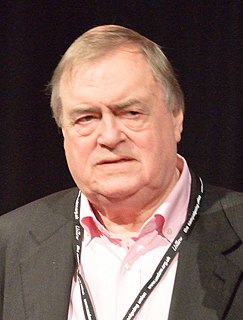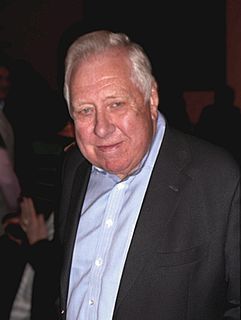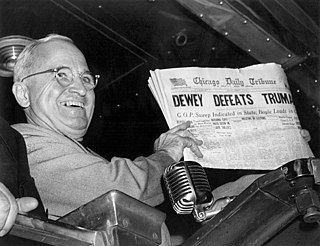
Stephen Twigg is a British Labour and Co-operative Party politician who has been Member of Parliament (MP) for Liverpool West Derby since 2010. He previously served as the Member of Parliament for Enfield Southgate from 1997 to 2005.

Christopher Michael Leslie is a British Change UK politician serving as Member of Parliament (MP) for Nottingham East since 2010.

The 1918 United Kingdom general election was called immediately after the Armistice with Germany which ended the First World War, and was held on Saturday, 14 December 1918. The governing coalition, under Prime Minister David Lloyd George, sent letters of endorsement to candidates who supported the coalition government. These were nicknamed ‘Coalition Coupons’, and led to the election being known as the ‘coupon election’. The result was a massive landslide in favour of the coalition, comprising primarily the Conservatives and Coalition Liberals, with massive losses for Liberals who were not endorsed. Nearly all the Liberal MPs without coupons were defeated, although party leader H. H. Asquith managed to return to Parliament in a by-election.
In the parliamentary politics of the United Kingdom and Canada, one member, one vote (OMOV) is a method of selecting party leaders by a direct vote of the members of a political party. Traditionally, these objectives have been accomplished either by a party convention, a vote of members of parliament, or some form of electoral college. OMOV backers claim that OMOV enhances the practice of democracy, because ordinary citizens will be able to participate. Detractors counter that allowing those unversed in the issues to help make decisions makes for bad governance.
The Scottish Labour Party is the UK Labour Party's devolved Scotland administrative subdivision.

The 1994 Labour Party leadership election was held on 21 July 1994 after the sudden death of the incumbent leader, John Smith, on 12 May. Tony Blair won the leadership and became Prime Minister after winning the 1997 general election.

The 1983 Labour Party leadership election was an election in the United Kingdom for the leadership of the Labour Party. It occurred when former leader Michael Foot resigned after winning only 209 seats at the 1983 general election, a loss of 60 seats compared to their performance at the previous election four years earlier. This was the worst showing for Labour since 1931.

LGBT Labour, the Labour Campaign for Lesbian, Gay, Bisexual and Transgender Rights, is a socialist society affiliated to the Labour Party in the United Kingdom. Originally called the Gay Labour Group, the stated purpose of this organisation is to campaign within the Labour Party and wider Labour movement to promote the rights of lesbian, gay, bisexual and transgender (LGBT) individuals, as well as to encourage members of the LGBT community to support the Labour Party.

The 1988 Labour Party leadership election saw Tony Benn, identified with the left wing of the British Labour Party, challenge the incumbent leader Neil Kinnock identified with the more moderate social democratic wing.

A deputy leadership election for the Labour Party in the United Kingdom took place in 1994, after the sudden death of incumbent leader John Smith. Margaret Beckett was the serving Deputy Leader of the Labour Party, having been elected in 1992, and following Smith's death became the acting leader. On 25 May she announced that a contest for the deputy leadership would take place alongside the leadership election, which allowed her to stand for both positions.

The 1981 Labour Party deputy leadership election took place on 27 September 1981 when Tony Benn unsuccessfully challenged the incumbent deputy leader Denis Healey at the party conference. Healey had been elected unopposed as deputy leader in the previous year.

A deputy leadership election for the Labour Party in the United Kingdom took place on 2 October 1988 when John Prescott and Eric Heffer challenged Labour's incumbent Deputy Leader Roy Hattersley. Hattersley had served in the position since 1983.

The Leader of the Labour Party is the most senior political figure within the Labour Party in the United Kingdom. Since 12 September 2015, the office has been held by Jeremy Corbyn, who has represented the constituency of Islington North since 1983.

The 1992 Labour Party deputy leadership election followed the Labour Party's failure to win the 1992 general election and the subsequent resignation of deputy party leader Roy Hattersley. The ballot took place on 18 July 1992 at Labour Party Conference. Affiliated organisations had 40% of the vote, while Constituency Labour Parties and the Parliamentary Labour Party had 30% each in the electoral college.

James Ignatius O'Rourke McMahon, is a British Labour and Co-operative Party politician who is MP for Oldham West and Royton, having won the seat at a by-election in December 2015. He has been a councillor since 2003 and served as leader of Oldham Metropolitan Borough Council.

A deputy leadership election for the Labour Party in the United Kingdom took place on 2 October 1983 to replace incumbent Deputy Leader Denis Healey. Healey had served in the position since 1980, becoming deputy leader at the same time that Michael Foot became party leader. Foot and Healey had both announced their resignations after the general election on 9 June 1983, in which a disastrous performance left the Labour Party with just 209 seats in parliament.

Daniel Stephen Zeichner is a British Labour Party politician. He was elected at the 2015 general election as the Member of Parliament for Cambridge, replacing the Liberal Democrat Julian Huppert. Before entering Parliament, Zeichner was a councillor for eight years.

The 2015 Labour Party deputy leadership election was triggered on 8 May 2015 by the resignation of Harriet Harman as Deputy Leader of the Labour Party of the United Kingdom following the party's defeat at the 2015 General Election. Harman, the Deputy Leader of the Labour Party, became Acting Leader following Leader Ed Miliband's resignation. Harman announced on the same day that she would step down as Deputy Leader, with her resignation taking effect when the new Leader and Deputy Leader are elected.

The 2016 Labour Party leadership election was called when a challenge to Jeremy Corbyn as Leader of the Labour Party arose following criticism of his approach to the Remain campaign in the referendum on membership of the European Union and questions about his leadership of the party.

























